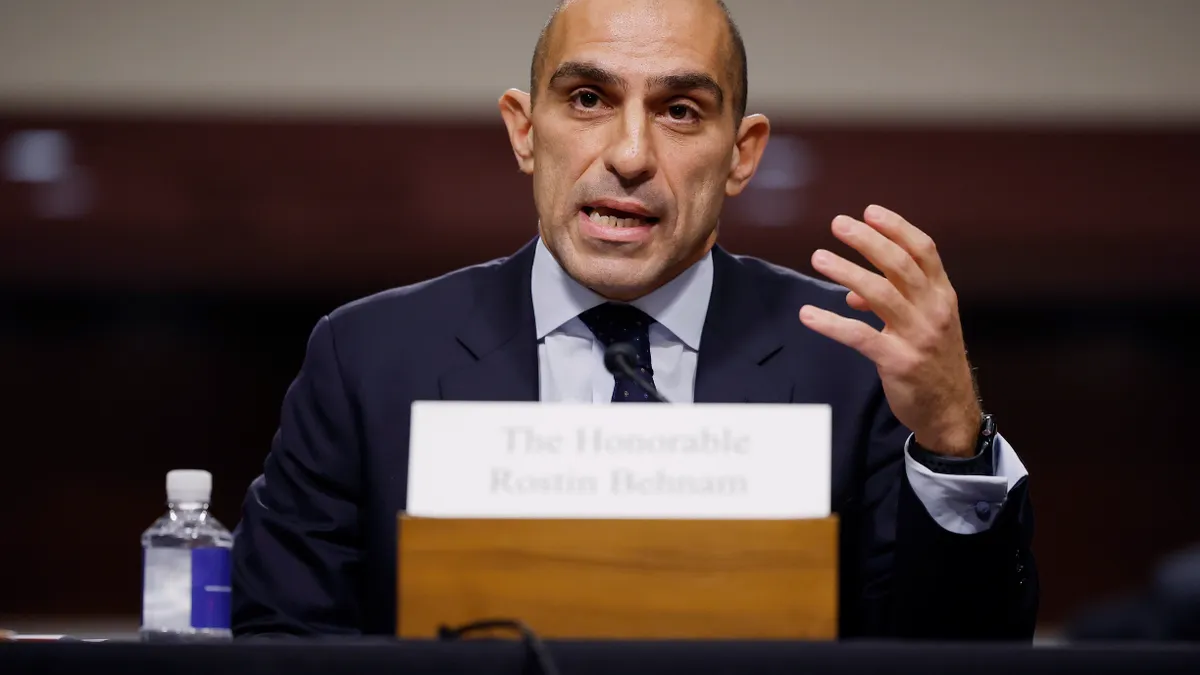Nearly half of the Commodity Futures Training Commission’s 96 enforcement actions in fiscal 2023 were related to digital assets, including against crypto companies and crypto-tied “individual Ponzi schemers,” the regulator said Tuesday.
Through 47 total crypto-related enforcement actions, the CFTC “cemented its reputation as a premier enforcement agency in the digital asset space,” it said, noting that it “obtained a first-of-its-kind litigation victory against a decentralized autonomous organization; charged and won another litigation victory against a digital asset futures platform; brought an innovative litigation involving cross-market manipulation in blockchains; and continued its efforts to protect the public in the decentralized finance space.”
Among the industry players caught in the CFTC’s crosshairs in fiscal 2023 were executives at fallen exchanges FTX and Celsius — including former FTX CEO Sam Bankman-Fried, who last week was convicted on seven criminal counts of fraud and conspiracy, and the three-member inner circle that testified against him.
The CFTC’s July charges against Celsius marked the first such case against a digital asset lending platform alleging illegal operation as an unregistered commodity pool. The regulator charged Celsius’ founder and former CEO, Alex Mashinsky, with fraud and material misrepresentation.
Binance founder and CEO Changpeng Zhao, and former chief compliance officer Samuel Lim were subject to CFTC charges in March for allegedly operating an illegal digital asset derivatives exchange. The CFTC also, for the first time, charged individuals with willfully evading or attempting to evade rules laid out by the Commodity Exchange Act.
“Defendants’ alleged willful evasion of U.S. law is at the core of the Commission’s complaint against Binance,” Gretchen Lowe, principal deputy director and chief counsel in the regulator’s enforcement division, said at the time. “The defendants’ own emails and chats reflect that Binance’s compliance efforts have been a sham and Binance deliberately chose — over and over — to place profits over following the law.”
In June, the CFTC won in court against decentralized autonomous organization Ooki DAO, which it had charged with operating an illegal trading platform and unlawfully acting as a futures commission merchant. The court said that Ooki DAO could be sued by the CFTC, that it’s a “person” under the CEA and therefore could be held liable for legal violations, and that the CFTC was right to say Ooki DAO had operated against the law. Ooki DAO was then ordered to pay a civil monetary penalty of $643,542.
Among other enforcements, the CFTC ordered South African crypto trading platform Mirror Trading and its CEO, Cornelius Johannes Steynberg, to pay a total of $3.4 billion — half in restitution, half in civil monetary penalty — for defrauding more than 23,000 Americans in what the CFTC dubbed a multi-level marketing scheme. The settlement resolved the CFTC’s largest-ever fraud case involving Bitcoin.
“The Commission continues to remain laser-focused on stopping and deterring fraud and manipulation in the U.S. I am proud of the Division of Enforcement’s groundbreaking work in the digital asset space ... At a time of great uncertainty and volatility, healthy U.S. commodity markets are paramount to ensuring a strong economy,” CFTC Chair Rostin Behnam said in a prepared statement.
While the CFTC and the Securities and Exchange Commission have acted in tandem several times this year in doling out enforcement actions against crypto companies and industry personnel, the regulators are perceived to have been in battle to determine which will ultimately be the crypto world’s main regulator.
Behnam pushed, at a hearing last December, to create a regulatory framework for digital assets following FTX’s collapse. Behnam expressed at the hearing that the CFTC should be in charge of that oversight, but SEC Chair Gary Gensler had also said he expects his agency to be the crypto market’s primary regulator because he views most tokens as securities.
Although some crypto framework has been proposed by lawmakers, no such laws have passed.
In all the CFTC’s 96 enforcement actions last fiscal year resulted more than $4.3 billion in penalties, restitution and disgorgement, the agency said.














